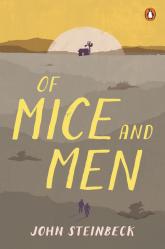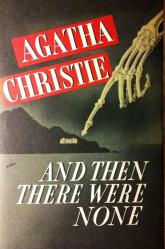In Arthur Miller's The Crucible, the book talks about how mass hysteria, gossip, and rumor are able to end lives and destroy reputations. In the play, John Proctor has a brief affair with Abigail Williams, whom he later fires. In order to win him back, she accuses people of Salem of witchcraft, which starts the endless cycle that kills many in the small town. The small Puritan society fantasized about a perfect reputation, which led the town to spread gossip and clear their own name, even if it meant sacrificing others. Once someone was accused of witchcraft, they would either say another person in the town was a witch to avoid getting hanged. However, if they did not give another name, they would be sentenced to death. Miller's play shows the true personalities of those in the Puritan society, and the obsession with their own reputation that causes them to sacrifice others in order to stay alive.

About This Book
A haunting examination of groupthink and mass hysteria in a rural community
The place is Salem, Massachusetts, in 1692, an enclave of rigid piety huddled on the edge of a wilderness. Its inhabitants believe unquestioningly in their own sanctity. But in Arthur Miller's edgy masterpiece, that very belief will have poisonous consequences when a vengeful teenager accuses a rival of witchcraft—and then when those accusations multiply to consume the entire village.
First produced in 1953, at a time when America was convulsed by a new epidemic of witch-hunting, The Crucible brilliantly explores the threshold between individual guilt and mass hysteria, personal spite and collective evil. It is a play that is not only relentlessly suspenseful and vastly moving but that compels readers to fathom their hearts and consciences in ways that only the greatest theater ever can.







